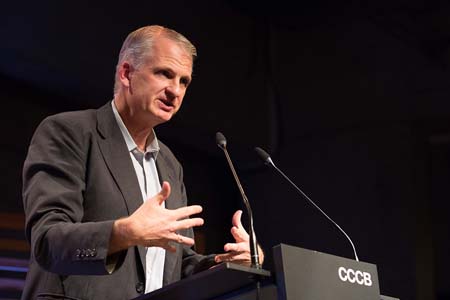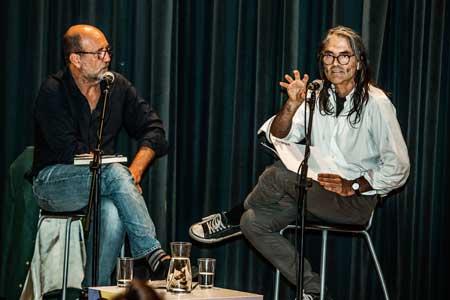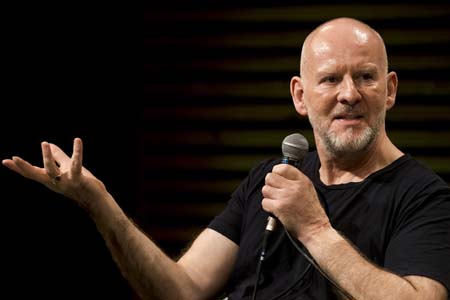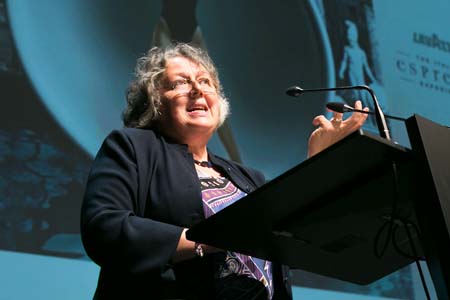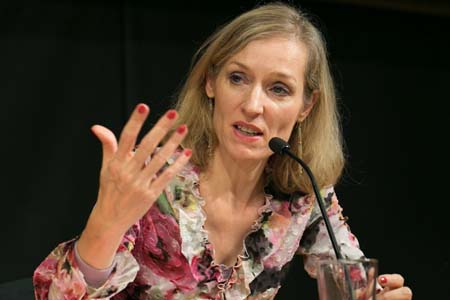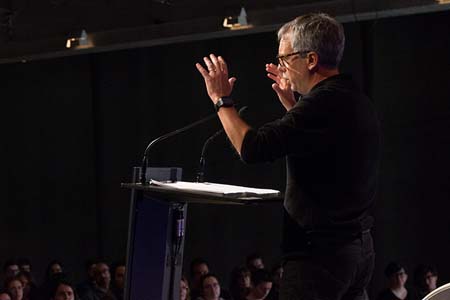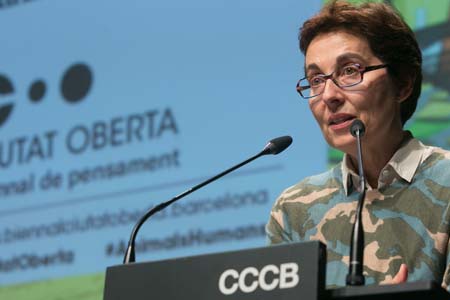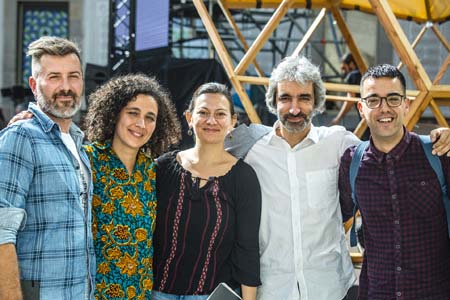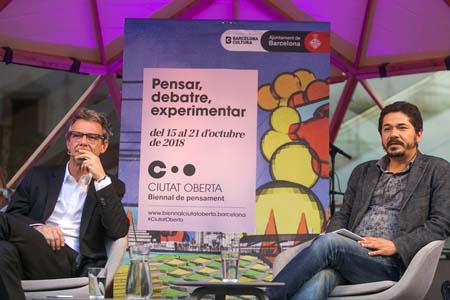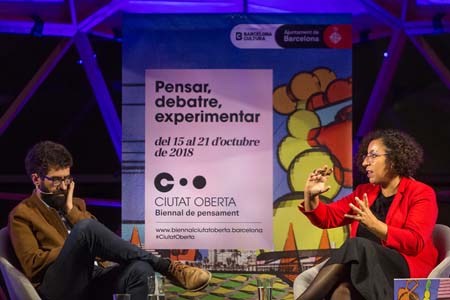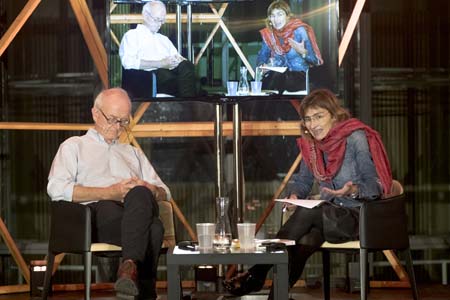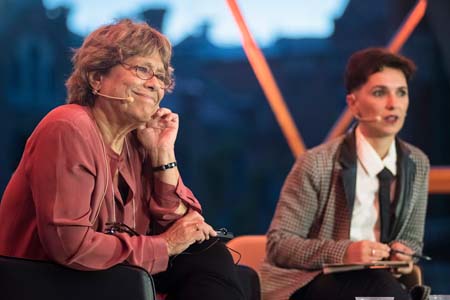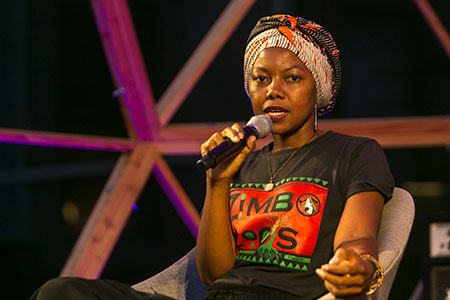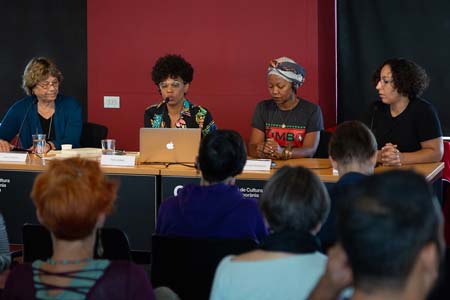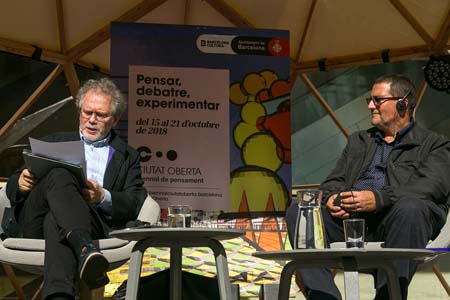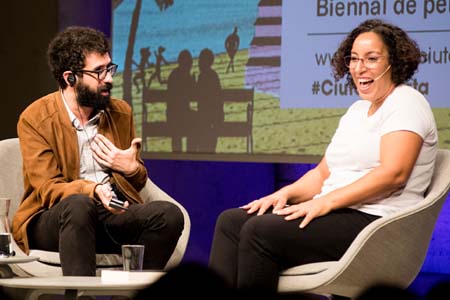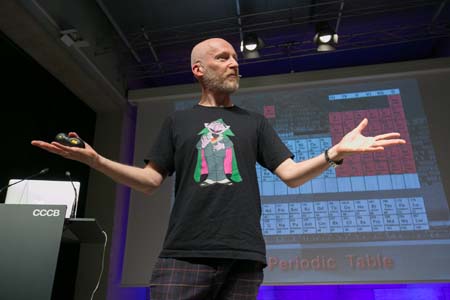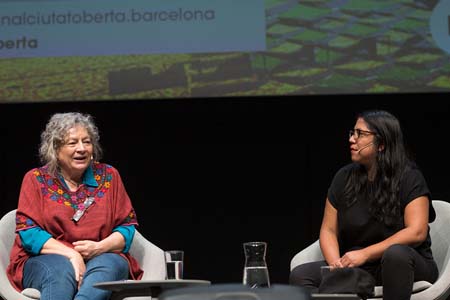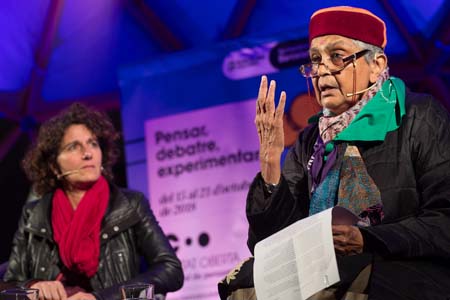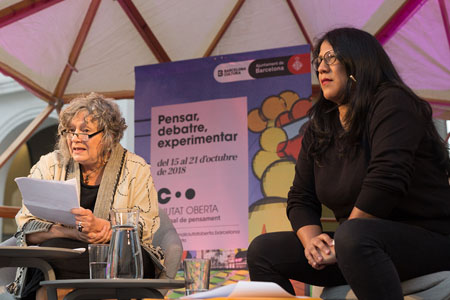Open City Thinking Biennale 2018
The world changes and cities are transformed. The Open City Thinking Biennale to be inaugurated in October 2018 takes these realities as its background and therefore aims to connect the role of cities today with the great challenges of contemporary society.
Timothy Snyder
A Defence of Freedom: On the Rise of Authoritarianism Today
The rise of the extreme right around the world has made manifest a growing mistrust in democracy as a political system in a shift which involves serious curtailment of freedoms and demonisation of minority groups. Timothy Snyder, one of the leading authorities on the history of Europe, warns ...
Simon Critchley and Jordi Puntí
Why Do We Think about Football?
The British philosopher and lifelong Liverpool fan, Simon Critchley has constructed a theory in which he brings together football and the human condition in the book What We Think about When We Think about Football (Profile Books, 2017). Simon Critchley speaks with the writer ...
Rosi Braidotti
Becoming Animals
Although humans are the species which has left the most obvious mark on Earth, Rosi Braidotti describes a not too far distant future in which the human species will cease to be the measure of all things. In this post-human world one of the biggest questions we will have to face will be what ...
Will Kymlicka
Animal Rights: The End of Human Supremacy
The philosopher Will Kymlicka believes that the change of paradigm that is necessary in our relationship with animals means putting an end to the hierarchy of species and expanding the framework of animal rights. What effects on humans would these changes have? Will Kymlicka, well known for ...
Marta Segarra
Blood Ties: Animality and Intimacy
Marta Segarra explores the ambiguity of the close ties existing between human and non-human animals. This is an intimacy which can be understood in very different and even conflicting ways.
Jordi Armadans, Blanca Garcés, Nour Salameh and Riccardo Gatti
A Crisis of Hospitality: The Situation of Refugees in Europe
What are the causes and factors that have pushed migrants to leave their lands? What global structural changes should be promoted in order to put an end to forced displacement? What immediate and long-term help can be offered? What are the main challenges faced by a city which wishes to be solidary? Experts, eyewitnesses and members of local entities compare their experiences and knowledge in this panel discussion about the present situation of migratory movements and the arrival of refugees in Europe.
Henry Marsh
Humanising Medicine
The British neurosurgeon Henry Marsh caused a stir when he published memoirs describing his 35 years of experience—including more than 15,000 operations—because of his sincerity in portraying the more human side of the medical profession. He spoke with the journalist Eva Piquer ...
Jane Lazarre and Bel Olid
Maternity, Activism and Democracy
Behind the idealised image of maternity there are many truths that are frequently hidden, namely physical pain, tiredness, professional and career concerns, dissatisfaction, and even regret. There is a gap between the contradictions a mother may experience and what her milieu and tradition ...
NoViolet Bulawayo and Gemma Parellada
Dialogues for Thinking about Diversity
Is it possible to go beyond intermingling and cultural exchange when thinking about society and contemporary culture? Population flows are the pattern in a globalised world in which identities are being diluted and superimposed, and in which a mosaic is being constructed, contributing towards collective enrichment everywhere.
Reflections on Writing: An Approximation from Curative Narratives
Conversation with NoViolet Bulawayo, Najat El Hachmi and Jane Lazarre, moderated by Tania Adam
A Morning with Rita Segato
Debates with Adolescents
In this session with secondary school students, Rita Laura Segato presents her thoughts about sexist violence against women, which she has studied and analysed in terms of its relationship with capitalism and the values on which it is constructed. Rita Laura Segato is professor of Anthropology ...
Gayatri Spivak and Marina Garcés
Education of the Future
The Indian thinker Gayatri Spivak calls for slow education and defends the role of local schools and teachers. One of the world’s best known postcolonialism theorists, Spivak advocates creating spaces that are independent of the dominant culture to give voice to the most vulnerable members ...
Rita Segato and Gabriela Wiener
The City of Women
Anthropologist Rita Segato considers that the violence suffered by many women is just the cruellest extreme of a system of domination of one half of society over the other that arises in dozens of everyday situations. And that the only possible solution is a new approach to gender in education ...
Judith Butler. Fina Birulés and Marta Segarra
The Gender Trouble: Why Do Bodies Matter?
Gender and sexuality are currently under discussion. How much influence do biology and culture have? Are there more than two sexes? How important are social norms, and to what extent can we change them in order to make life more “liveable”? What is the difference between “precariousness” ...
